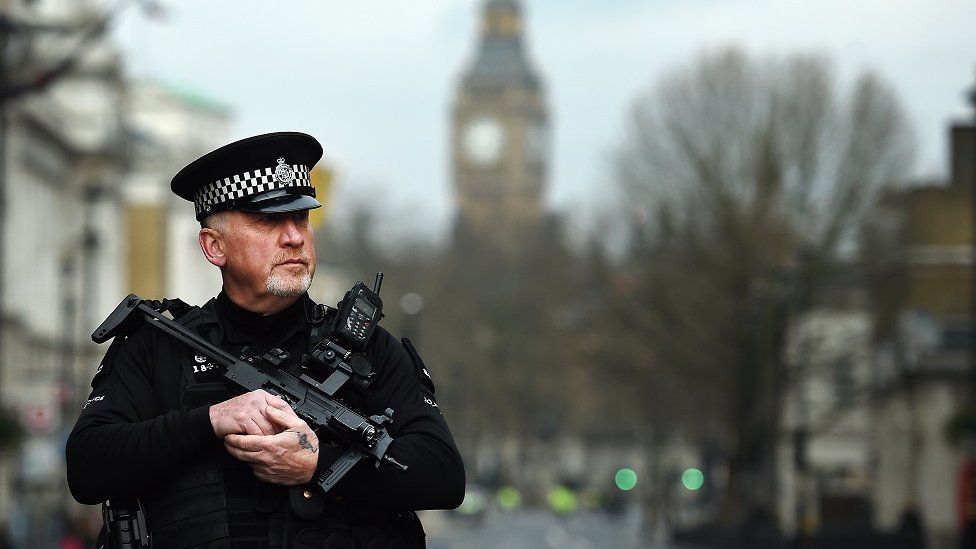How should we talk to children about terrorism?
- Published

Terror attacks can be difficult for adults to understand - so how should we talk to children about terrorism?
Last year an NSPCC report revealed that children are becoming increasingly anxious about world wide issues.
Many of those who contacted Childline told counsellors they were concerned about the EU referendum, the US presidential election and troubles in the Middle East.
Is it possible to discuss distressing news stories with children without adding to their worries?
Psychologist Emma Kenny and Nicky Cox, the editor of children's newspaper First News, spoke about the issue on BBC Radio Scotland.
Should we switch off the television when the news comes on?
Even if children are shielded from distressing news stories at home, they are likely hear about it from friends in the playground or on social media.
In fact, parents who think they are protecting their offspring may be doing them a disservice, according to Nicky Cox.
The editor said: "If you think as a parent you've done a really good job in shielding your child, you're doing them a disservice because they're going to go into school, they're going to be talking about in the playground, in the lunch hall, and they're going to be getting information second, third and fourth hand.
"It's so important that parents do not think that they are in control of how their children access information because they are not.
"They need to be sure that they make sure that children get accurate information and they are empowered to know the truth when they are talking to their friends."
Tell them the truth
As editor-in-chief of First News, Nicky Cox said her team of reporters are careful to present the facts to their readership.
She said it was important children are taught how to identify reliable news sources over so-called "fake news".
"We tell the truth," she added.
"I think there's absolutely no reason not to tell them the truth because they are going to hear all sorts of misinformation if they're on the internet or they're just talking at school.
"There is so much fake news out there, there is so much misinformation out there and it is important that they are educated to recognise where to go to get proper information.
"I think kids are more savvy than most adults give them credit for."
Start a conversation
Psychologist Emma Kenny said very young children are likely to be put at ease with reassurance from their parents.
But older children may not tell their parents they have heard about a distressing news story or spotted graphic images on social media.
Ms Kenny said it was important that parents start an open conversation.
"Ask them if they've heard the news and allow them to have that conversation," she said. "That's how they can start to ask you the questions that really most people want to ask each other."
Answer their questions
Ms Kenny told BBC Radio Scotland that her eldest son told her he didn't really want to go back to London, following the Westminster attack.
"I said to him, we're going to London in April because the reality is you're more likely to die by falling out of bed than in a terrorist attack," she said.
She told him that the few "bad or sick people" were in the minority and "the UK is full of good people".
"When you look at what happened yesterday, it was full of people running towards that attack to help, not people running away to save themselves," she added.
She advised parents to use their children's parents as props for their conservation, then use statistical analysis to give them some reassurance.
"Ask you child, in all the years you've been here, how many times has that occurred for you, how many times have you been involved in it?"